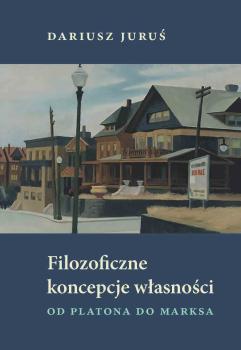Filozoficzne koncepcje własnosci: Od Platona do Marksa
Słowa kluczowe:
własność, wolność, sprawiedliwość, równość, prawo naturalne, jednostka, osobowośćStreszczenie
Na przestrzeni wieków własność była postrzegana z różnych perspektyw. Było to wynikiem ówczesnych stosunków społecznych i politycznych, a w szczególności wizji świata i człowieka.
Własność była rozumiana jako element jednoczący wspólnotę (św. Tomasz) lub źródło nierówności (Rousseau, Proudhon, Marks). Czasem łączono własność ze sprawiedliwością (Hume) czy prawem (Hobbes, Bentham), a czasem z wolnością (Kant). Dla niektórych filozofów własność prywatna stanowiła źródło dobrobytu i samorealizacji (Arystoteles, Locke, Hegel, Bastiat), a dla innych była źródłem opresji i alienacji (Proudhon, Marks). Niektórzy filozofowie uważali własność za prawo naturalne (Locke, Spooner), podczas gdy inni traktowali ją jako instytucję zależną od państwa (Hobbes, Bentham). Przez niektórych filozofów własność była traktowana jak instrument, dzięki któremu człowiek może realizować wolę Boga (św. Tomasz, Locke), inni natomiast postrzegali ją jako narzędzie w walce z nierównością (Proudhon, Mill, Spooner). O tym wszystkim jest ta książka.
Rozdziały
-
Rozdział I. Własność wspólna jako droga do boskiego szczęścia. Platon (427-347 p.n.e.) .......... 13
-
Rozdział II. Własność jako droga do cnoty. Arystoteles (384-322 p.n.e.) .......... 25
-
Rozdział III. Formy własności. Prawnicy rzymscy .......... 35
-
Rozdział IV. Człowiek jako powiernik własności. Św. Tomasz (1224-1275) .......... 49
-
Rozdział V. Własność służąca samozachowaniu i dobru wspólnemu. Hugo Grocjusz (1583-1645) .......... 55
-
Rozdział VI. Własność podporządkowana suwerenowi. Thomas Hobbes (1588-1679) .......... 67
-
Rozdział VII. Człowiek właścicielem samego siebie; praca źródłem własności. John Locke (1632-1704) .......... 77
-
Rozdział VIII. Własność ufundowana na sprawiedliwości. David Hume (1711-1776) .......... 93
-
Rozdział IX. Własność jako źródło nierówności. Jean-Jacques Rousseau (1712-1778) .......... 103
-
Rozdział X. Własność ufundowana na wolności. Immanuel Kant (1724-1804) .......... 111
-
Rozdział XI. Własność jako warunek samoświadomości. Johann Gottlieb Fichte (1762-1814) .......... 121
-
Rozdział XII. Własność jako podstawa rozwoju osobowości. Georg Wilhelm Friedrich Hegel (1770-1831) .......... 129
-
Rozdział XIII. Własność jako podstawa bezpieczeństwa i wytwór prawa. Jeremy Bentham (1748-1832) .......... 141
-
Rozdział XIX. Własność absolutna. Lysander Spooner (1808-1887) .......... 189
-
Rozdział XX. Pojedynczy podatek od własności ziemi. Henry George (1839-1897) .......... 197
-
Rozdział XXI. Własność prywatna jako źródło dehumanizacji człowieka. Karol Marks (1818-1883) .......... 207
Downloads
Bibliografia





